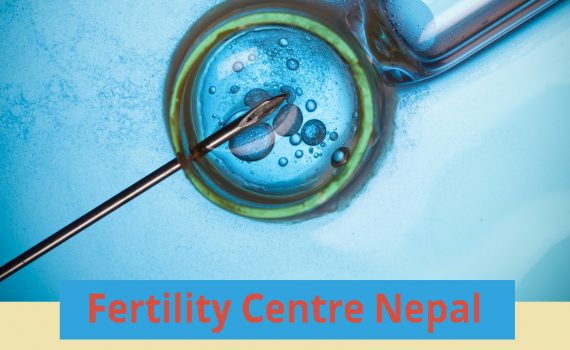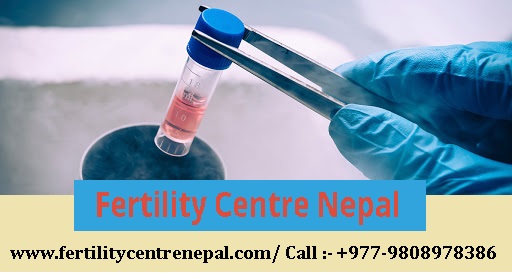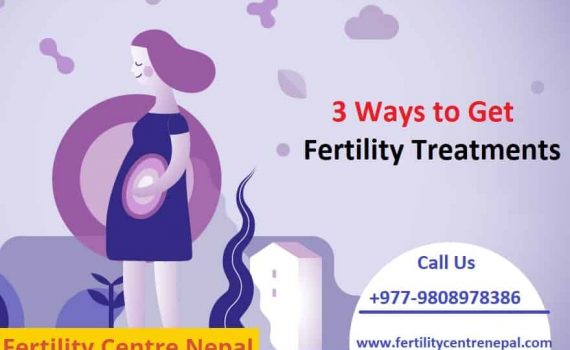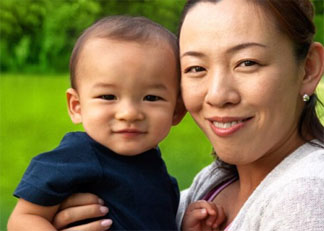ICSI Treatment Nepal
Category : blog , ICSI treatment , IVF in Nepal
Increasing the Chances of Conception with ICSI Treatment in Nepal
Finest quality ICSI treatment for enhanced chances of pregnancy
ICSI treatment in Nepal –ICSI or Intracytoplasmic Sperm Injection is an enhanced form of fertility treatment where the possibility of a pregnancy is increased by employing a particular method for acquiring the sperms. In the process of ICSI treatment Nepal, a single sperm is injected into the cytoplasm of the egg. This single insertion of sperm into the egg substantially increases the chances of a healthy pregnancy. It is an advanced method of assisted reproduction that a couple opts for when they experience IVF or other fertility treatments.
The treatment is performed in combination with IVF and is also known as IVF ICSI. This treatment is done in cases of severe male factor infertility where it is hard to obtain the sperms due to various infertility disorders in men. Man with infertility problems such as poor sperm count, low sperm motility, bad sperm morphology and other conditions that prevent the sperm from coming out in the ejaculated semen. The single sperm that is injected into the egg is highly motile, which significantly increases the chances of conception.
Why IVF treatment in FERTILITY CENTRE NEPAL?
(1) Several tests and procedures at one destination
(2) Top counselling sessions for better process
(3) Guaranteed treatment packages
(4) Suitable IVF cost in Nepal
(5) State of the ART technologies and methods
(6) The highest IVF success rate in Nepal
(7) Top-knowledgeable doctors for IVF treatment in Nepal
(8) Call us at +977-9808978369
(9) Or mail us at [email protected]
When do you need a ICSI treatment?
Submit a list of your questions
At Fertility Centre Nepal, we have the best fertility experts that perform comprehensive diagnosis on the patient to find the cause of infertility and provide the best course of treatment to cure the same. Our medical experts employ state-of-the-art equipment when operating the patient for ICSI treatment in Nepal. Our team works together with our doctors to ensure a quality treatment experience to the patients with minimal discomfort. Also, our success rates for different fertility treatments are the highest when compared with other fertility clinics. We also provide another type of fertility treatments such as IMSI, PICSI, IVF with FET, MESA, TESA, PESA, etc.
Who is a good candidate for ICSI treatment in Nepal?
Sometimes adequate fertilization does not happen in IVF, and the couple may have to go for more advanced treatment for effectuating fertilization. ICSI treatment in Nepal is used to treat severe cases of male factor infertility, especially when the couple fails to get desired results with IVF treatment. Whether ICSI is the best treatment option for you is only determined after consulting with a fertility specialist but below are some candidates for ICSI treatment in Nepal.
Here is the list of some good candidates for ICSI treatment.
(1) Men with low sperm count.
(2) Men with poor sperm motility.
(3) Men with abnormally shaped sperms.
(4) Men who had a vasectomy.
(5) Men with erectile dysfunction
(6) Men with ejaculatory problems
(7) Men with immune aspects of infertility
How is ICSI treatment done in Nepal?
The process of ICSI treatment is the same as that of IVF only the method of sperm selection is different. In ICSI treatment, the doctor selects a single sperm cell for injecting into the egg. During the process of ICSI, the woman is recommended to take some fertility medicines for triggering her ovaries to produce a better quantity of quality eggs. This increased quantity of eggs is required to have better chances of fertilization. The development of eggs is continuously monitored with the help of ultrasounds. Once the eggs mature, they are retrieved from the ovaries with the assistance of a hollow needle.
Then, the next step is semen collection, and for that, the male partner is invited to the clinic to provide his semen sample. From the collected semen sample, the doctor picks out the single high motility sperm for the process of ICSI treatment. The doctor then injects the selected single sperm directly into the cytoplasm of the egg. The sperm that gets injected is of the best quality, which significantly increases the likelihood of pregnancy. The embryo formed as a result of fertilization is implanted inside the recipient’s uterus. Eventually, some pregnancy tests are done after two weeks of confirming pregnancy.
Fertility Centre Nepal is a famous medical tourism company in India offering the services of the best fertility experts with considerable experience in performing efficacious fertility treatment procedures with positive outcomes. We offer the best ICSI treatment in Nepal with the highest chances of success. Our team at the network hospital work with all their might to give the best treatment experience to the patient. Also, our success rates for different types of fertility treatment are the highest, which is why international patients prefer India for their fertility treatment.
Our success rates:
IVF treatment in Nepal is the topmost for better pregnancy results. You can have the highest IVF success rate in Nepal. FERTILITY CENTRE NEPAL has top assistance in performing infertility treatments. These help in managing different conditions and provide the top outcome.
Still, your success rate of IVF in Nepal depends on various factors. For instance:
(a) Your age because advanced age has fewer conception chances.
(b) The couple gametes have poor conditions.
(c) Your IVF process is as per infertility issues.
(d) The IVF centre in Nepal you choose
Your IVF success rates in Nepal will be as per age. Such as:
(a) The female partner at the age of 30 has 50% chances
(b) The female partner at the age of 35 has a 40% chance.
(c) The female partner at the age of more than 38 has 32% chances
(d) The female partner at the age of the 40s has 29% chances
(e) The female partner at the age of 45 has 23% chances
What else about us:
FERTILITY CENTRE NEPAL
(1) Utmost assistance at every stage during the treatment
(2) Gametes and embryo cryopreservation facilities
(3) Top-notch ART techniques and approaches
(4) Assistance for the IVF cost in Nepal
(5) Highly well-behaved fertility experts
(6) Call us at +977-9808978369
(7) Or mail us at [email protected]
FAQs
How may the chances of IVF be increased?
IVF is a top art technique whose effectiveness depends on medical professionals, technological advancements, and patient hands. Your serious infertility issues may limit your ability to conceive and result in failure. While IVF therapy can boost your chances of getting pregnant. It requires fit female partners and healthy gametes. Additionally, it can be helpful to keep a watch on several factors. You must start by selecting the top IVF clinic with the best aids and techniques. Then select the best remedy for your needs that is suitable for many diseases. Next, keep your physical and mental circumstances in good shape. The outcome of treatment can be impacted by any problem condition.
Can I save my IVF cost?
Yes, your IVF charges can save by focusing on some aspects. By choosing the best centre, you can have top packages and facilities for paying fewer prices. Also if you have healthy eggs and sperm, your chances are higher to conceive at an affordable cost. You can save the IVF treatment cost by choosing the best method. Because, Patients with different infertility conditions need several procedures for successful conception. And these increase the entire treatment charges by including these methods. But if you face IVF process failures because of the procedure per issues. So, your treatment charges will increase and cause a problem in the budget.
How does IVF have a high success rate?
IVF (In Vitro Fertilization) functions with the top procedure. It performs after the failure of other procedures and normal reproduction outcomes. The IVF process performs with a couple’s eggs and sperm. Firstly, the female partner’s egg production will increase. As fertility medications will help in producing healthy eggs. Then, the couple’s gametes retrieve by the expert from the reproductive system. These will fertilize under observation. And for pregnancy, the highly developed fertilized eggs implant inside the female uterus. Moreover, your IVF can have a procedure for infertility and health conditions. It helps in the successful outcome.
What can increase my IVF success rate?
IVF is top-notch that needs assistance with various technologies. Also, the IVF success rates are much higher than any other method. It helps the couple achieve a successful pregnancy outcome. But some patients face problems with IVF success rates. Because many factors are responsible for IVF’s successful outcome. Also, you have chances to increase the IVF success rate and conceive the baby. For instance:
(a) Eating healthy diet
(b) By maintaining the perfect weight
(c) Concentrating on the psychological health
(d) Choosing the best IVF clinic
(e) Having top IVF treatment and approaches
Does IVF have invasive stages?
Several surgical phases are involved in IVF treatment. Additionally, the procedure may alter if you use alternative methods of treatment. The process of retrieving female eggs is less intrusive. The professional gather healthy eggs after egg production. To enter the female uterus, they utilize a catheter. The female vagina contributes to the growth of the uterus and cervix. Additionally, they aspirate the eggs using a tiny needle. The fertilized egg then attaches itself to the female uterus after that. The technique is also intrusive. During the expert’s second catheterization. If the male spouse is unable to produce healthy sperm, it can be used. Therefore, the specialist may advise surgical sperm retrieval.
Read Also
(a) How effective is the IUI in Nepal?
(b) Why ICSI in Nepal is the best process for a successful pregnancy?
(c) Nepal’s best IVF Clinic Biratnagar for infertile couples
(d) How much does the Fibroid Removal Surgery Cost in Nepal?
















